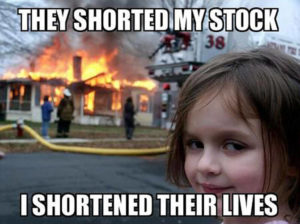Amateur Investor
Thoughts of an amateur investor
I am not what one would call a seasoned investor, infact, I am quite the opposite.
The stock market has always been something that I heard about, yet I never had never quite delve into it. I am still a child when it comes to anything related to stocks or the stock market. My first experience was in my senior year of high school as I played simulations of the market, investing all of my money into the large companies that everyone talks about (Tesla, Meta, Google, so on.) However, the acqusition and management of said stocks were something that I never attached myself to, as they had no actual monitary value. Each buy order I made never really had no structure to them, as I made impulsive purchases or based all of my purchases off the green numbers and upward trends. As you can probably tell, I did not do so well, as my portfolio closed at nearly 40% of its original value.
Although my first experience with the stock market may not have been the best, it served as great stepping stone. Being able to explore the ins and outs of the stock market still have an impact on me to this day. The concepts of selling and buying never really would have cemented in my knowledge if it was not for the stock market game. However, knowing when to do so is still a challenge.
Analyzing graphs and reading patterns is something that can be done easily, as we can use mathematics to calculate potential futures. However, in the case of stocks, that is an entirely different story. Whenever I talk to people regarding stocks, I am told to monitor news, trends, as well as statistics based on the stock I am interested in. Yes, taking notes of stocks is pretty helpful, however, knowing when to buy or sell is entirely different. How is one supposed to predict the perfect time to sell or buy?
As I know it, stocks are based on decisions made by companies, government influence (economy), or other factors that impact a certain company that may reflect on their stock value. However knowing when these decisions may affect the stock is something that unpredictable. In addition to this, stock traders are another factor that are entirely unpredictable. Constant fluxuations in the stock market are something that I know occur on a daily basis, however, somehow knowing when to purchase a stock or selling it is a task that is incomprehensible (or maybe just a “feeling” that I still have not acquired yet.)
Moving on to the topic of shorting… Shorting, shorting, why do you exist… The concept of shorting was never something that I grasped entirely. As Investopedia puts it:
Short selling occurs when an investor borrows a security and sells it on the open market, planning to buy it back later for less money. Short-sellers bet on, and profit from, a drop in a security’s price. (Investopedia)
It baffles me why someone would allow someone take a share of their stock, betting that it would go down. Like why would you let someone do this?? You are literally letting people borrow a share of your stocks and let them earn off of it, by hoping it would go down. Im sure, to me and many others, shorting sounds unethical in its entirety. Although there are some unethical parts of shorting, there may be some benefits like
provide liquidity and price discovery to a market, making it more efficient (Investopedia)
but the ethcicity of the whole concept, in my opinion, overpowers the benefits. I know this is sort of controversial as there are many people that have benefited off shorting, but how is this legal? The closest thing that I can think of that could relate to the concept of shorting a stock is like how a superhero would offer themselves up to a villain and see the world burn as only the villain benefits; which does not make any sense. Don’t people want to see the upsides, rather than the down? I dont get it…

There is still I do not know about the stock market and/or stocks so, yes, I’m an amateur. 👶💵